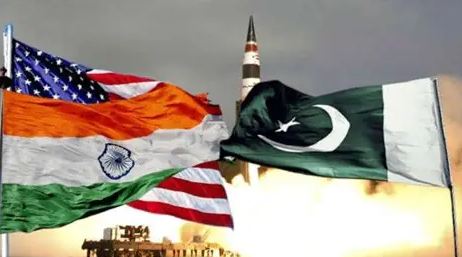by Muhammad Mohsin Iqbal

There is no doubt that, bound by the vagaries of time and the temptations of material interest, man’s memory often bends to convenience. Consciously or unconsciously, he wishes to erase his past words and actions whenever they no longer serve his present ambitions. Thus, political leaders and even great nations often seek to rewrite their own narratives, expecting the world to forget their contradictions and embrace their latest version of the truth. Yet history, with its unyielding pen, does not forget.
When India launched its unprovoked aggression against Pakistan in early May 2025, the world witnessed one of those rare moments when hypocrisy and self-interest stood naked before truth. At the height of tension, then U.S. Vice President JD Vance, serving under President Donald J. Trump, declared that “the United States has nothing to do with the disputes between Pakistan and India.” The statement, intended to project diplomatic neutrality, infuriated New Delhi, which had expected overt Western support in its misadventure.
However, when Pakistan’s armed forces responded decisively on May 8 and 9, inflicting serious losses and compelling Indian forces to retreat, the situation changed overnight. India’s fury turned into panic, and the same United States that had claimed indifference suddenly jumped into the fray like a self-appointed village Chaudhry, rushing to break up the very fight it had quietly encouraged. Had India been on the winning side, no such Chaudhry would have appeared to call for peace.
But by the command of Providence and through the foresight of Pakistan’s leadership, events unfolded in a way that stunned the world. Pakistan’s swift and disciplined response not only preserved national dignity but also demonstrated a strategic maturity few had anticipated. Still, as soon as the smoke began to clear, Washington sought to reshape the narrative. To maintain its global image, the U.S. began claiming that it had “stopped the war.” The story of Pakistan’s success was quietly replaced with the illusion of American mediation.
Behind this façade, however, lay a deeper reality — the war of interests. If, during the confrontation, the American-made aircraft in India’s fleet had been shot down instead of the French Rafales, Washington’s reaction would have been markedly different. The silence that followed Pakistan’s defensive victory was not born of neutrality but of calculation. American defense corporations had vast stakes in India’s market, and preserving those contracts became the real priority.
For days after the clashes, Western media carried conflicting reports; first denying losses, then underreporting them, and finally attributing calm to U.S. “diplomatic intervention.” In truth, as the dust settled, a quiet series of negotiations began between Washington and New Delhi, culminating in a ten-year defense cooperation framework — a pact that ensured India would remain one of America’s largest arms clients for the next decade. This was the real game plan; a war wrapped in profit, a partnership clothed in rhetoric.
Pakistan, however, was not deceived. The nation’s leadership and strategic community have long understood the pattern of Western duplicity in South Asia — the tendency to praise restraint while rewarding aggression, to preach peace while selling weapons. The lesson of May 2025 is therefore unmistakable; we must never place all our trust, or our eggs, in one basket. National security cannot depend on the shifting loyalties of external powers; it must rest on self-reliance, regional cooperation, and unwavering internal strength.
The US Naval “Enterprise” that once promised steadfast assistance to Pakistan still struggles to fulfill its commitments. This, too, is a reminder that alliances built on convenience rarely withstand the test of adversity. The world respects those who act with principle, not those who wait for validation. In this age of transactional diplomacy, Pakistan must remain guided by its own compass — the pursuit of peace through strength, and friendship without submission.
While the so-called champions of global order alter their narratives to suit commercial gain, Pakistan’s resilience stands out as a model of discipline and dignity. The events of May 2025 were not merely a military episode; they were a revelation — exposing the double standards of international politics, where morality bends before markets and truth is silenced by trade. Yet amidst all this noise, Pakistan’s steadfast resolve spoke louder than any statement issued from afar.
History will remember that when others hesitated, Pakistan acted. When the world’s “Chaudhry” tried to rewrite the story, reality remained unshaken on the ground. The clash of May 2025 was more than a confrontation between two neighbors; it was a test of national will, and Pakistan passed it with honor.
The coming years will bring new challenges and new temptations — calls for alignment, pressures of alliance, and promises of assistance. But if there is one enduring lesson from that chapter, it is this; our destiny lies not in the hands of others, but in the strength of our own decisions.
When power politics obscures the truth and the mighty of the world attempt to revise history, Pakistan’s voice must remain clear and unyielding. For when the world wavered, Pakistan stood firm — and that, above all, is the echo that still resounds beyond May.

















